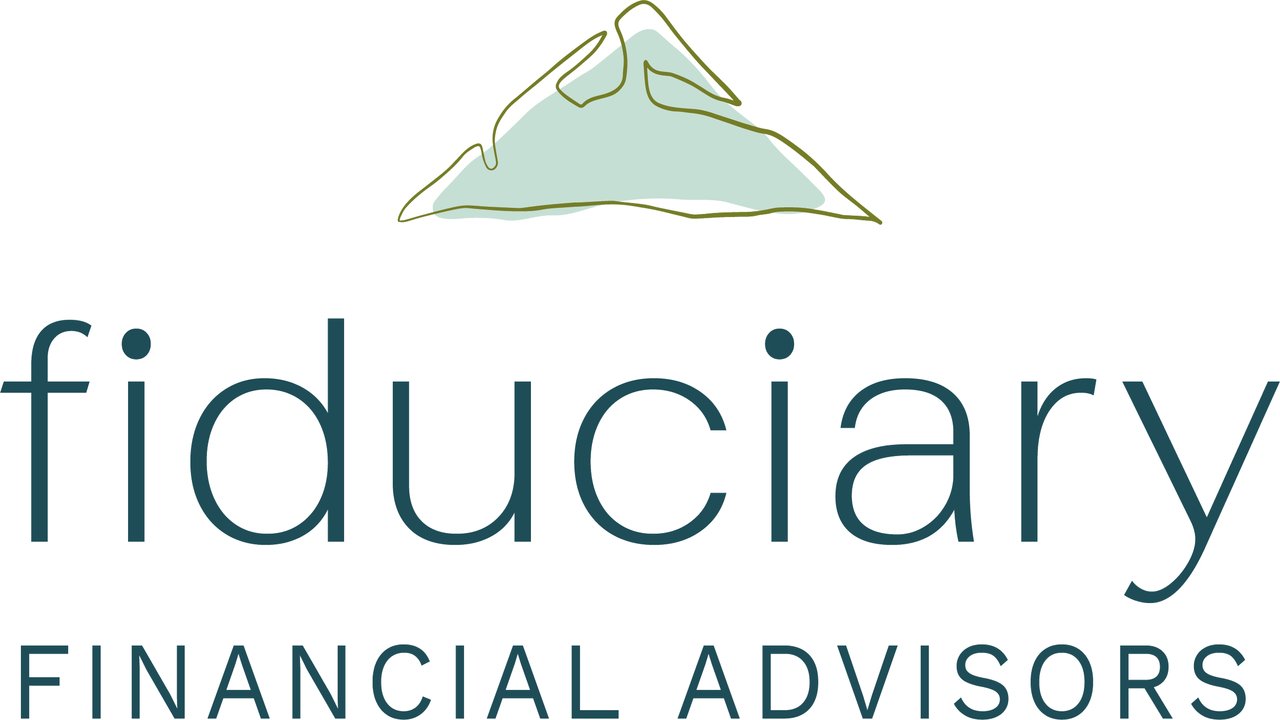Trusted Fiduciary Financial Advisor | Expert Wealth Help.
Picking a financial advisor can feel like a big deal, right? You want someone who really gets what you’re trying to do with your money. It’s not just about picking any advisor; it’s about finding the *right* one. This guide is here to help you figure out what a fiduciary financial advisor is and why they might be the best choice for you. We’ll break down what they do, what makes them different, and how to find one that fits your needs.
Thank you for reading this post, don't forget to subscribe!Key Takeaways
- A fiduciary financial advisor is legally bound to put your financial interests ahead of their own.
- Working with a fiduciary means more transparency in fees and a focus on your specific goals.
- Always confirm an advisor’s fiduciary status and check their credentials and experience.
- Ask direct questions about compensation, potential conflicts of interest, and their planning approach.
- Look out for red flags like unclear fees, guaranteed high returns, or poor communication.
Understanding the Fiduciary Financial Advisor Role

Defining a Fiduciary Financial Advisor
You might have heard the word “fiduciary,” but what does it actually mean when it comes to financial advisors? A fiduciary financial advisor is someone who is legally and ethically required to put your interests first when giving financial advice or managing your investments. These advisors serve individuals, families, or even businesses, covering everything from investment planning to help with retirement and taxes. Unlike some other financial professionals, fiduciaries can’t just suggest something because it’s good for them—they have to make sure it’s the best for you.
If you want a financial partner who’s focused purely on your needs, choosing a fiduciary can bring some serious peace of mind.
The Legal and Ethical Obligations
Fiduciary advisors are bound by strict rules. They can’t recommend products just because there’s a commission or personal gain involved. The law says they have to act in your best interest, revealing any possible conflicts before you agree to anything. That includes being clear about fees, how they get paid, or any other ties that might sway their advice. When an advisor operates as a fiduciary, you can expect honesty, accountability, and full transparency.
Here’s what “fiduciary duty” really covers:
- Duty of care: Advisors must make well-informed decisions and recommendations.
- Duty of loyalty: Your needs come first, always.
- Duty to disclose: All potential conflicts, fees, or limitations must be shared upfront.
Fiduciary vs. Non-Fiduciary Advisors
Not every advisor is a fiduciary, and this can make a big difference in the support you get. Non-fiduciary (or “suitability standard”) advisors only have to recommend options that are suitable, not necessarily the best for you. Sometimes, they earn commissions from certain products, which might influence what they suggest. Here’s how they compare:
| Aspect | Fiduciary Advisor | Non-Fiduciary Advisor |
|---|---|---|
| Obligation | Client’s best interest | Suitable recommendations |
| Fee Transparency | High | Often less clear |
| Conflict Disclosure | Required | Not always required |
| Product Recommendations | Needs-based | May be commission-influenced |
- Fiduciary advisors are legally required to prioritize you.
- Non-fiduciary advisors can legally put their own payout first in some cases.
- Knowing if your advisor is a fiduciary affects the kind of guidance you’ll get.
In short, if clear accountability and your financial wellbeing are priorities, make sure you know your advisor’s role before moving forward.
The Distinct Advantages of Working with a Fiduciary
So, why bother with a fiduciary financial advisor? It really comes down to trust and getting advice that’s actually for you. Unlike other advisors who might suggest products that pay them more, a fiduciary has a legal duty to put your interests first. This makes a big difference in how they operate and what you can expect.
Transparency and Trust
This is a huge one. Fiduciaries have to be upfront about any potential conflicts of interest. Think of it like this: they can’t steer you toward an investment just because it earns them a bigger commission. Their fee structures are usually pretty clear, too, so you know what you’re paying for without any hidden surprises. This open approach helps build a solid foundation of trust, which is pretty important when you’re talking about your money. It’s about knowing your advisor is on your side, plain and simple. You can confirm their fiduciary status when you first talk to them, which is a good starting point for any financial advisor relationship.
Personalized Financial Planning
Fiduciaries don’t just push products; they look at your whole financial picture. They take the time to really understand your goals, your comfort level with risk, and where you’re coming from. This means the financial plan they create is tailored specifically to you. fiduciary financial advisor It’s not a one-size-fits-all deal. They consider everything from saving for retirement to managing taxes and planning for your estate.
Long-Term Investment Perspective
Forget about quick wins or chasing the latest hot stock. A fiduciary advisor is focused on steady, long-term growth. They help you build a diversified portfolio that makes sense for your goals and how long you plan to invest. This approach helps you stay calm during market ups and downs, preventing you from making rash decisions that could hurt your finances down the road.
Mitigating Financial Risks
Part of a fiduciary’s job is to help protect your money. They carefully assess how much risk you’re comfortable with and then build an investment mix that balances potential returns with that risk level. This often involves spreading your money across different types of investments. They’ll also regularly check in on your portfolio to make sure it still fits your goals and risk tolerance.
Working with a fiduciary means you’re getting advice that’s legally required to be in your best interest. It’s about having someone in your corner who prioritizes your financial well-being above their own potential earnings.
Identifying and Selecting Your Fiduciary Advisor
Finding the right financial advisor is a big deal. It’s not just about picking someone with a fancy title; it’s about finding a partner who will genuinely look out for your financial well-being. Since we’re talking about fiduciaries, the main thing to remember is that they’re legally bound to put your interests first. That’s a pretty big difference from advisors who only have to suggest things that are ‘suitable‘ for you.
Confirming Fiduciary Status
This is the absolute first step. Don’t be shy about asking directly: “Are you a fiduciary?” A true fiduciary will answer with a clear yes and likely explain what that means for you. They have a legal duty to act in your best interest, which means their advice should always align with your goals, not their own paycheck. It’s like asking a doctor if they’re committed to your health – you want a straightforward answer.
Verifying Credentials and Experience
Once you’ve confirmed they operate as a fiduciary, it’s time to check their background. Think of it like checking references for a contractor. You want to see what kind of training they’ve had and how long they’ve been doing this. Some common certifications to look for include:
- Certified Financial Planner (CFP®): This usually means they’ve got a handle on overall financial planning and are held to fiduciary standards.
- Chartered Financial Analyst (CFA): This is more focused on investment management and analysis.
- Accredited Estate Planner (AEP®): If estate planning is your main concern, this is a good one.
Beyond certifications, ask about their experience, especially with people in situations similar to yours. Have they worked with clients planning for retirement, managing investments, or navigating life changes?
Understanding Compensation Structures
How an advisor gets paid can really shape the advice they give. It’s important to get clarity on this upfront. Common ways advisors are paid include:
- Assets Under Management (AUM) Fees: A percentage of the money they manage for you.
- Flat Fees: A set amount for their services, regardless of your account size.
- Commissions: Paid when you buy specific financial products.
Transparency here is key. If an advisor is vague about fees or how they make money, that’s a potential red flag. You want to understand if their compensation might create any conflicts of interest. For example, if they earn a higher commission for selling one product over another, does that influence their recommendation?
Choosing a financial advisor is a significant decision. It’s about finding someone you trust to manage your money and guide your financial future. Taking the time to confirm their fiduciary status, verify their credentials, and understand their compensation structure will help you build a solid foundation for a successful relationship.
Key Questions to Ask Potential Advisors

So, you’ve decided to find a financial advisor. That’s a big step, and a good one. But with so many out there, how do you pick the right one? fiduciary financial advisor It really comes down to asking the right questions. Think of it like a job interview, but for your money. You want to make sure they’re qualified, honest, and that you actually get along.
Assessing Service Offerings
First things first, what exactly do they do? Don’t assume everyone offers the same thing. Some advisors focus heavily on investments, while others are more about retirement planning or estate planning. You need to know if their services match what you’re looking for. Are you trying to save for retirement, manage a windfall, or just get a handle on your day-to-day budget? Make sure they have experience in the areas that matter most to you.
- What specific financial planning services do you provide? (e.g., retirement, investment, tax, estate planning)
- Do you have experience working with clients who have similar financial goals or situations as mine?
- How do you typically help clients achieve their stated financial objectives?
Inquiring About Fiduciary Duty
This is a big one. You want someone who is legally obligated to put your interests ahead of their own. That’s what a fiduciary is. It’s not just a nice-to-have; it’s a legal standard. Ask them directly if they operate as a fiduciary at all times when working with you. If they seem hesitant or unclear, that’s a potential red flag.
A fiduciary advisor is bound by law to act in your best interest. This means they must prioritize your financial well-being above their own potential gains or the interests of their firm.
Clarifying Compensation and Conflicts of Interest
How does the advisor get paid? This is super important because it can influence the advice they give. Some advisors earn commissions from selling products, while others charge a fee based on the assets they manage or a flat fee for their services. Understanding their compensation structure helps you see if there might be any built-in conflicts of interest. For example, an advisor paid by commission might be tempted to recommend products that pay them more, even if it’s not the absolute best option for you.
Here’s a quick breakdown of common compensation models:
- Commission-Based: Paid a commission for selling financial products (stocks, bonds, mutual funds, insurance). This can create a conflict of interest.
- Fee-Based: A combination of fees and commissions.
- Fee-Only: Paid directly by the client through hourly fees, a flat fee, or a percentage of assets managed (AUM). This model generally has fewer conflicts of interest.
Always ask for a clear explanation of all fees and how they are calculated. Don’t be afraid to ask them to spell out any potential conflicts of interest and how they manage them.
Building a Strong Advisor Relationship
Finding a financial advisor who is a fiduciary is a big step, but the relationship doesn’t stop there. You need to feel good about working with them, day in and day out. It’s about more than just numbers; it’s about trust and clear communication. Think of it like finding a good doctor or lawyer – you want someone you can rely on and who understands your situation.
Communication Style Compatibility
How does your advisor explain things? Do they use a lot of jargon, or can they break down complex financial ideas into plain English? A good advisor will make sure you understand what’s happening with your money. They should be patient and willing to answer your questions, no matter how simple they might seem. It’s important that their communication style clicks with yours so you’re always on the same page.
Assessing Personal Connection
Beyond the technical stuff, do you feel comfortable talking to this person about your financial life? Sharing your goals, fears, and dreams about money can be personal. You need to feel a level of trust and rapport with your advisor. This personal connection is key to a long-lasting and productive relationship. If you don’t feel like you can be open and honest, it might be a sign they aren’t the right fit for you.
Evaluating Their Planning Approach
Every advisor has a different way of looking at financial planning. Some might focus heavily on investments, while others take a broader view, including retirement, taxes, and estate planning. It’s important to see if their approach aligns with your own goals and timeline. Do they seem focused on the long haul, or are they pushing short-term fixes? Understanding their philosophy helps you see if it matches your vision for your financial future. fiduciary financial advisor For instance, if you’re planning for retirement, you’ll want to know how to choose a financial advisor for retirement who understands income planning and asset allocation for your later years. Remember, a fiduciary is legally obligated to act in your best interest, which means their advice should always prioritize your financial well-being [5766].
Here’s a quick way to think about their approach:
- Long-Term Vision: Do they help you create a plan that spans years, not just months?
- Goal Alignment: Does their strategy directly support what you want to achieve?
- Risk Management: How do they talk about managing potential downsides?
- Adaptability: Are they open to adjusting the plan as your life changes?
Recognizing Red Flags in Advisor Selection
Finding the right financial advisor is a big deal. You’re trusting someone with your money and your future, so it’s smart to know what to look out for. Not all advisors operate the same way, and some warning signs can help you steer clear of a bad fit.
Lack of Fee Transparency
This is a big one. If an advisor is cagey about how they get paid, or if their fee structure is confusing, that’s a red flag. You should know exactly how much you’re paying and what services that covers. Are they charging a flat fee? A percentage of what you invest? Commissions on products they sell? A truly transparent advisor will lay all of this out clearly from the start. If they seem hesitant to discuss money matters, it might be best to look elsewhere.
Guarantees and Overpromising
Be really wary of anyone who promises guaranteed high returns or claims they can eliminate all risk. Investing inherently involves some level of risk, and anyone who tells you otherwise is likely not being honest. Financial markets go up and down. If an advisor sounds too good to be true, it probably is. They might be pushing products that benefit them more than you.
Limited Advisor Communication
A good advisor should be accessible and keep you in the loop. If you find it hard to get in touch with them, or if they don’t proactively update you on your portfolio or market changes, that’s not a great sign. You want someone who communicates clearly and regularly, explaining things in a way you can understand. It’s your money, after all, and you deserve to be informed.
Choosing a financial advisor is a significant step. Being aware of these common pitfalls can save you a lot of trouble down the road. It’s about finding someone you can trust to act in your best interest, not just their own.
Putting It All Together
So, we’ve talked a lot about what a fiduciary financial advisor is and why they matter. Basically, they’re legally bound to put your interests first, which is a pretty big deal when it comes to your money. It means they’re supposed to be upfront about fees and any potential conflicts, and their main goal is to help you reach your financial goals, not just sell you something. Finding the right one might take a bit of effort, like asking the right questions and checking credentials, but it’s worth it for that peace of mind. Having someone in your corner who’s genuinely looking out for your financial future can make a real difference.
Frequently Asked Questions
What exactly is a fiduciary financial advisor?
Think of a fiduciary financial advisor as someone who’s legally required to put your money needs first. They have to act in your best interest, like a trusted friend managing your money. This means they can’t recommend something just because it pays them more; it has to be the best choice for you.
How is a fiduciary advisor different from other advisors?
Other advisors might only need to suggest things that are ‘suitable’ for you, which isn’t always the absolute best option. A fiduciary, however, must always choose what’s truly best for you. They also have to be open about any possible conflicts of interest, so you know where they stand.
Why should I choose a fiduciary advisor?
Working with a fiduciary means you get more honesty and can trust them more. They focus on making a personalized plan just for you, looking at the long run instead of quick profits. This helps protect your money and gives you peace of mind knowing someone has your back.
How can I find out if an advisor is a fiduciary?
The best way is to just ask them directly! You can also check their background on websites like the SEC’s or FINRA’s. Look for advisors who call themselves ‘Registered Investment Advisers’ (RIAs) or have certifications like CFP®, as they are usually fiduciaries.
What kind of questions should I ask a potential advisor?
You should ask if they are a fiduciary, how they get paid (fees, commissions, etc.), what services they offer, and what experience they have with people in situations like yours. Also, see if you feel comfortable talking to them and if they explain things clearly.
What are some warning signs when picking an advisor?
Be careful if an advisor isn’t clear about their fees, makes promises that sound too good to be true (like guaranteed high returns), or doesn’t communicate with you regularly. These could be signs they aren’t fully focused on your best interests.













